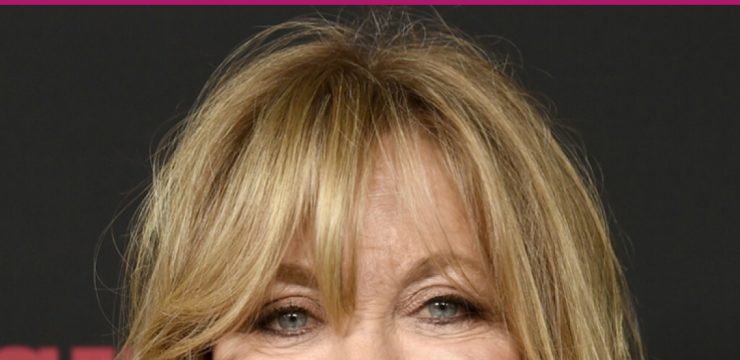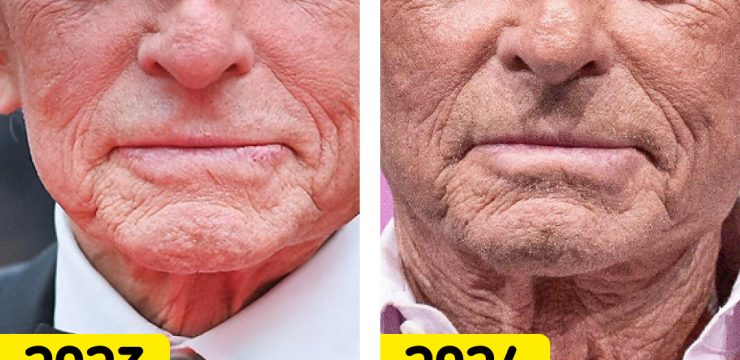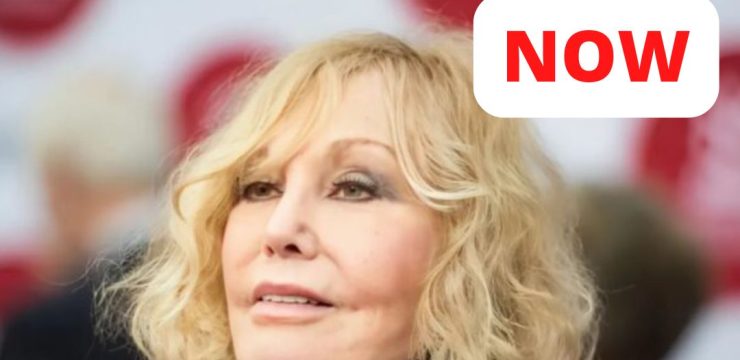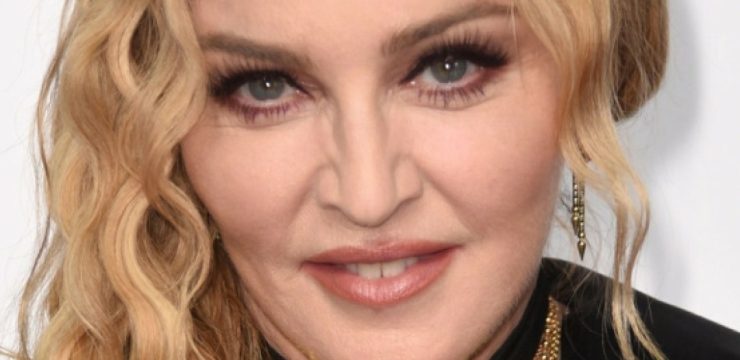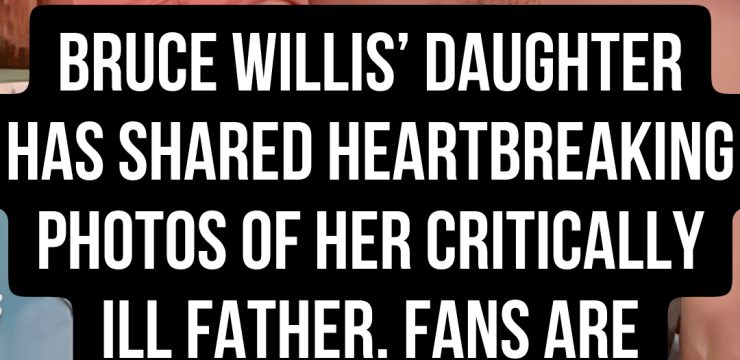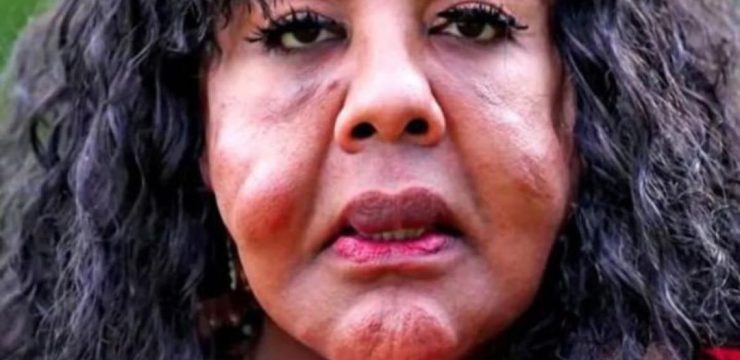has long been a familiar face in American pop culture—a beloved actress who first won hearts as a teenager in the hit sitcom One Day at a Time. But behind the radiant smile and on-screen charm was a woman carrying decades of emotional pain, much of it caused by years of body-shaming and psychological abuse. For a long time, Bertinelli remained silent, choosing to maintain a composed public persona. Yet recently, she has stepped forward with a voice stronger than ever—one that speaks not just for herself, but for millions of women who have struggled with self-image, aging, and healing from emotional wounds.

Much of Bertinelli’s anguish, as she has candidly revealed, stemmed from her relationship with her late ex-husband, rock legend Eddie Van Halen. While their marriage was often seen by fans as glamorous and passionate, Bertinelli has peeled back the curtain to expose the painful truths. Though she continues to express love for Eddie and admiration for his musical genius, she does not shy away from sharing the emotional toll the relationship took on her. Over the years, Van Halen’s offhand and at times cruel remarks about her weight slowly chipped away at her self-worth. These comments weren’t just occasional jabs—they became internalized narratives that she would carry with her for decades.
For many women, Bertinelli’s story is all too relatable. Living in a society where beauty standards are rigid and often unattainable, weight becomes more than a number on a scale—it becomes a measure of worth in the eyes of others. And when those closest to you reinforce that belief, the emotional damage can be devastating. Bertinelli’s mental health suffered greatly as a result. Her self-esteem plummeted, and she found herself trapped in a cycle of shame, self-criticism, and emotional silence.
But what makes Bertinelli’s story extraordinary is not the suffering she endured, but the way she chose to respond. In recent years, she embarked on a deeply personal journey of healing, one that involved therapy, introspection, and a conscious decision to let go of the shame that had haunted her for so long. She began sharing her experiences with greater openness, using her platform to shed light on the impact of emotional abuse and body-shaming—not as a victim, but as a survivor.
Then came a moment that sparked both widespread praise and polarizing controversy. At the age of 64, Bertinelli posted a photo of herself in lingerie on social media—not for validation or shock value, but as a symbol of empowerment. She wasn’t seeking attention. She was reclaiming her body, her story, and her voice. In doing so, she challenged long-held stereotypes about how women “should” behave or appear at a certain age. She shattered the taboo of older women expressing confidence in their physicality.
Predictably, the reaction was mixed. Many fans and fellow celebrities applauded her bravery, calling her an inspiration. They saw a woman who had found the courage to love herself again and who was encouraging others to do the same. But just as many critics emerged, some questioning the appropriateness of such a post from a woman in her sixties. The backlash, steeped in ageism and outdated gender norms, revealed just how uncomfortable society still is with women owning their bodies—especially when those bodies do not conform to conventional standards of youth or beauty.
Rather than retreat, Bertinelli responded with grace and strength. She acknowledged the criticism but made it clear that she no longer lives for the approval of others. For the first time in her life, she said, she feels truly at home in her own skin. And that feeling, she emphasized, is liberating beyond measure. “I’m not doing this for anyone else,” she said. “I’m doing this for me.”

Her words struck a chord. Thousands of women began sharing their own stories—of enduring criticism from partners, family members, or strangers; of hiding their bodies out of shame; of waiting decades to feel comfortable enough to look in the mirror with kindness. Bertinelli’s journey became a mirror for so many others, reflecting the shared pain and resilience of women who have spent a lifetime being told they are not enough.
There’s something particularly powerful about Bertinelli’s transformation because it goes beyond the physical. Yes, she has embraced her body, but she has also embraced her voice, her imperfections, and her past. Her healing has involved more than self-acceptance—it has required courage to confront painful memories, to speak truths that were long buried, and to redefine her worth on her own terms. And in doing so, she has sparked a broader conversation about aging, beauty, and the quiet strength it takes to reclaim your life.
For decades, Hollywood has imposed a narrow definition of femininity and desirability. Women are praised for their youth and punished for aging. They’re expected to be thin but curvy, sexy but modest, confident but not too bold. Bertinelli’s decision to push back against those expectations—especially at an age when most women are told to fade into the background—is both radical and necessary. It challenges the belief that visibility belongs only to the young or the conventionally attractive.
But Bertinelli is not just challenging societal standards—she is also unlearning the toxic messages that were instilled in her from an early age. In interviews and social media posts, she has spoken about her struggles with disordered eating, negative self-talk, and the relentless pursuit of thinness. She recalls moments when she would skip meals or obsess over the number on the scale, believing that thinness would bring love, validation, or success. But that pursuit, she now realizes, only distanced her further from self-compassion.
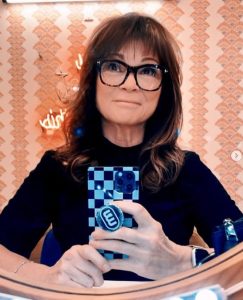
Healing, as she describes it, has been anything but linear. There are still moments of doubt, of vulnerability, of old wounds reopening. But through it all, Bertinelli continues to choose love—love for herself, for her body, and for the life she’s building now. She surrounds herself with people who uplift rather than criticize, and she engages in practices that nurture her spirit rather than deplete it. Whether it’s cooking, journaling, or simply taking a quiet walk, she prioritizes moments that remind her of her worth.
The ripple effect of her journey is undeniable. In a time when social media is often blamed for perpetuating unrealistic beauty standards, Bertinelli’s honesty offers a refreshing counter-narrative. She’s not filtering out her flaws or chasing likes—she’s modeling what it looks like to be real, vulnerable, and unapologetically human. And in doing so, she’s giving others permission to do the same.
Her story is especially significant for older women who often feel invisible in today’s culture. In many ways, Bertinelli is rewriting the script for what it means to age. She’s proving that growing older doesn’t mean growing irrelevant. On the contrary, it can be a time of awakening, of empowerment, and of deep, transformative growth. She stands as a reminder that it’s never too late to heal, to reclaim your voice, or to fall in love with yourself again.
There’s also a powerful feminist undercurrent to her journey. By rejecting the idea that her value lies in her appearance or in the approval of men, Bertinelli is asserting her autonomy. She is defining beauty on her own terms and showing that liberation begins within. Her lingerie photo wasn’t just a moment of confidence—it was a declaration of sovereignty over her body and her narrative.

In a culture obsessed with youth and perfection, Bertinelli’s message is a balm for the soul. She invites us to consider a different kind of beauty—one that grows richer with time, that is rooted in resilience, and that radiates from within. Her glow is not the result of airbrushing or diet fads, but of deep emotional work and the hard-won peace that comes from embracing your truth.
The legacy she is building now may, in the end, be even more impactful than her decades-long acting career. Because while fans loved her as Barbara Cooper on screen, they are falling in love with her all over again as the real Valerie—a woman who dares to be herself in a world that often demands conformity. Her courage, vulnerability, and authenticity are forging a new path for women of all ages to follow.
Ultimately, Bertinelli’s story is not just about survival—it’s about thriving. It’s about taking the pain of the past and turning it into purpose. It’s about looking in the mirror and seeing not flaws, but a life well-lived. It’s about realizing that worth isn’t something to be earned through thinness, youth, or perfection—but something that is already yours, just waiting to be claimed.

As the world continues to evolve in its understanding of mental health, self-image, and personal empowerment, voices like Valerie Bertinelli’s are more important than ever. They remind us that healing is possible, that age is not a limitation but a gift, and that the most beautiful transformations often begin from within.
And so, at 64, Valerie Bertinelli isn’t fading into the background—she’s shining brighter than ever. Not because she’s trying to prove anything to anyone, but because she finally knows the truth about herself. And in that truth, she has found a kind of freedom that no critic, no comment, no past mistake can ever take away.
